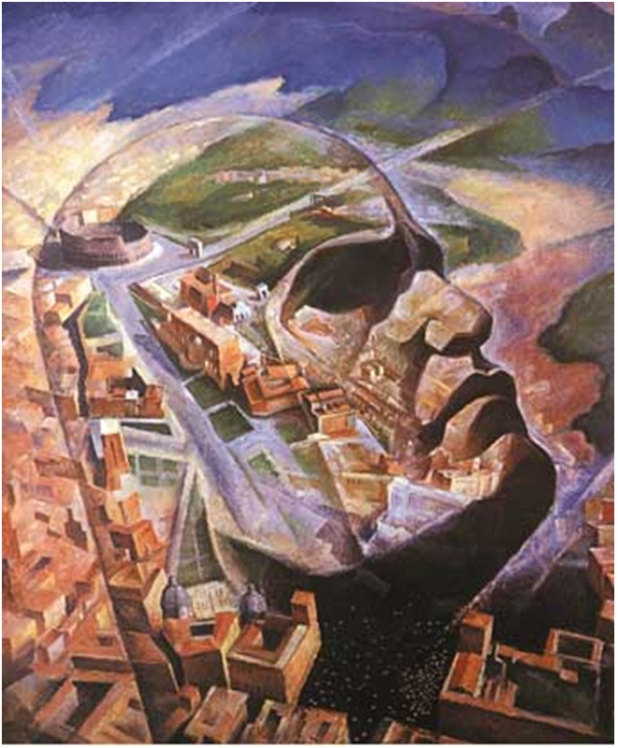Eric Striker
Daily Stormer
December 12, 2016

Jews as a group have invested a lot of time and money into socially pathologizing every pursuit that doesn’t involve money or sex. Jews perceive morals as irrational and idealism as the opiate of fools. That is why there are no worthwhile Jewish artists or poets, while their philosophers are generally mechanical legalistic over-explainers (usually wrong) of how rather than why. Note how Jews are often over represented as interpreters of classical music, but as composers, they make you envy the deaf.
For this reason, the Jew Michael Kinsley can’t comprehend why Donald Trump is using state power to intervene in the capitalist dismemberment of America. Additionally, “liberals” and “leftists” who support the Democratic party and Obama are being put in an awkward position, as the very problems plaguing working and middle class people that they claimed had no solutions are beginning to get resolved before Trump is even officially president.
So how do you deal with this dilemma? Jewish ideologues at the DNC take political initiatives the goyim who support them wish they would do themselves and label it “Fascism.”
Kinsley writes for Washington Post:
Donald Trump is a fascist.
When you call somebody a fascist, you can mean any number of things. Often, it means no more than “somebody I don’t like.” It is an all-purpose epithet, usable by anyone against everyone from university deans to Fox News anchors. For that reason, the label should be used sparingly — saved for special occasions. As with “Nazi” or “Hitler,” it is often said that in any discussion, the first person reduced to using such a word has lost the argument. It’s ridiculous to compare any living person to Hitler or Mussolini.
But I mean “fascist” in the more clinical sense. For close to a year, and especially since his election as president, people have been trying to figure out Trump’s political principles: What does he stand for, how will he act as president? Various theories have been advanced.
…
But now that we’ve seen a bit of him in action, it seems that Trump actually does have a recognizable agenda that explains how he simultaneously can pander to big business generally while “strong-arming” (the words of a Post editorial Friday) an air conditioning manufacturer to save a few hundred jobs for a while. Or how he can make nice with the authoritarian Vladimir Putin while making bellicose foreign policy noises in general. Or how he can blithely upset with a phone call the absurdly delicate balance of our relations with China and Taiwan. All this seemingly erratic behavior can be explained — if not justified — by thinking of Trump as a fascist. Not in the sense of an all-purpose bad guy, but in the sense of somebody who sincerely believes that the toxic combination of strong government and strong corporations should run the nation and the world. He spent his previous career negotiating with the government on behalf of corporations; now he has switched teams. But it’s the same game.
The game has several names: “Corporate statism” is one. In Europe, they call it “dirigisme.” Those two other words for it — “Nazism” and “fascism” — are now beyond all respectability. It means, roughly, combining the power of the state with the power of corporations. At its mildest, it is intrusive regulations on business about parental leave and such. At its most toxic, it is concentration camps. In the 1930s, a few Americans (including a few liberals) bought into it. Pearl Harbor ended that argument. Even for Trump, “fascism” itself now is a dirty word, not just a policy choice. Even Trump would not use it — least of all about himself.
But the deal Trump negotiated with Carrier and its parent company, United Technologies, to “save” hundreds of jobs is a prime example of the philosophy. Trump brags about “saving” Midwestern blue-collar jobs through a combination of bribery and arm-twisting. Turns out hundreds more jobs will be lost, and Trump as president can’t possibly negotiate on behalf of millions of workers.
But Trump believes — truly believes, I think — in the title of one of his books: the art of the deal. He thinks he is the world’s greatest negotiator. When he says he won’t reveal his income taxes because he is in the midst of negotiations with the IRS, he may be sincere. He says, believably, that he gets audited every year. That means every year’s tax bill is just the government’s opening move in an annual chess game, and Trump doesn’t want to give away his own opening move. Now he plans to negotiate more “deals” and he thinks — because he can outfox some midlevel IRS auditors — that he can outfox the political and business leaders of the world. “The Art of the Deal” is not “Mein Kampf,” although “not ‘Mein Kampf’ ” isn’t much of an endorsement.
Just to be clear: If I’m correct that Trump actually has a governing philosophy, that’s a bad thing, not a good thing. If he actually has principles to guide him through those famous swamps he plans to drain, that’s alarming, not reassuring. Bad principles are not a good substitute for no principles. Four or eight years of bad principles may make no principles look pretty good.
Just to clear up the outright deceitful definition of Corporatism that Kinsley taps Howard Zinn and other Judeo-Left thinkers for, his definition is not the same as the economic principles of Fascism or National Socialism. Fascist governments and parties, from Italy to Kuomintang Taiwan, were innately hostile to capitalism (as it is understood in the West), especially the concept of individuals hoarding large amounts of capital (which inevitably leads to political corruption and plutocracy, especially in liberal democracies).
In the cases of early 20th century Japan and the Third Reich, these two nations developed their economies through central planning (“socialism”), although not as all-encompassing as in the Soviet Union. All of these nations still had some degree of free enterprise and private businesses, but they were subservient to the state and national interest, the inverse of corporate capitalist countries where the state is subservient to private capitalists.
Trump may well be inspired by these experiences, and both cuckservatives and Leftist Jews hate him for it, but it isn’t the same as cronyism which is what the modern definition of “corporatism” denotes.
Corporatism, as it was used by Benito Mussolini, is a rough translation of the original Italian that is obsolete in English today. The Latin root is “corpus,” or body. The idea is that the economy is part of a collective body – the nation; the original metaphor was that the relationship between workers and capital was akin to a hand feeding the stomach. If the hand and the stomach are out of sync with one another, and one is purposely neglecting the other, then the body cannot function and it dies.
Today the American body is dying, and the Jew is the festering maggot gorging itself on open national sores like New York City and California. The rest of the body – starving from the lack of constructive employment America’s largest industries like the “finance” sector offer – is in revolt, and Trump is trying to contain the infection.
How so-called “progressives” can denounce Trump for calling for crackdowns on Jewish monopolies like Comcast, or attacking Boeing, or negotiating to keep jobs in America, is beyond me, and beyond what’s left of their non-SWPL white vote (all 10 of them).
I like more things about Trump than I don’t (I really don’t like his latest Goldman Sachs Jew appointments), but I wish he would go further and simply nationalize any industry looking to take goodies and sell products for high prices in America, while giving absolutely nothing back. His solutions so far on this front are band-aids that will be torn off as soon as he finishes his 8 year term. But what matters is that it is a huge leap in the right direction to keep our people working.
I’m counting on (((Michael Kinsley))) and shills like George Will to continue labeling him a Fascist. Sociology is junk science, but since this is a game of margins, let’s hope in Trump’s case “labeling theory” is true.


